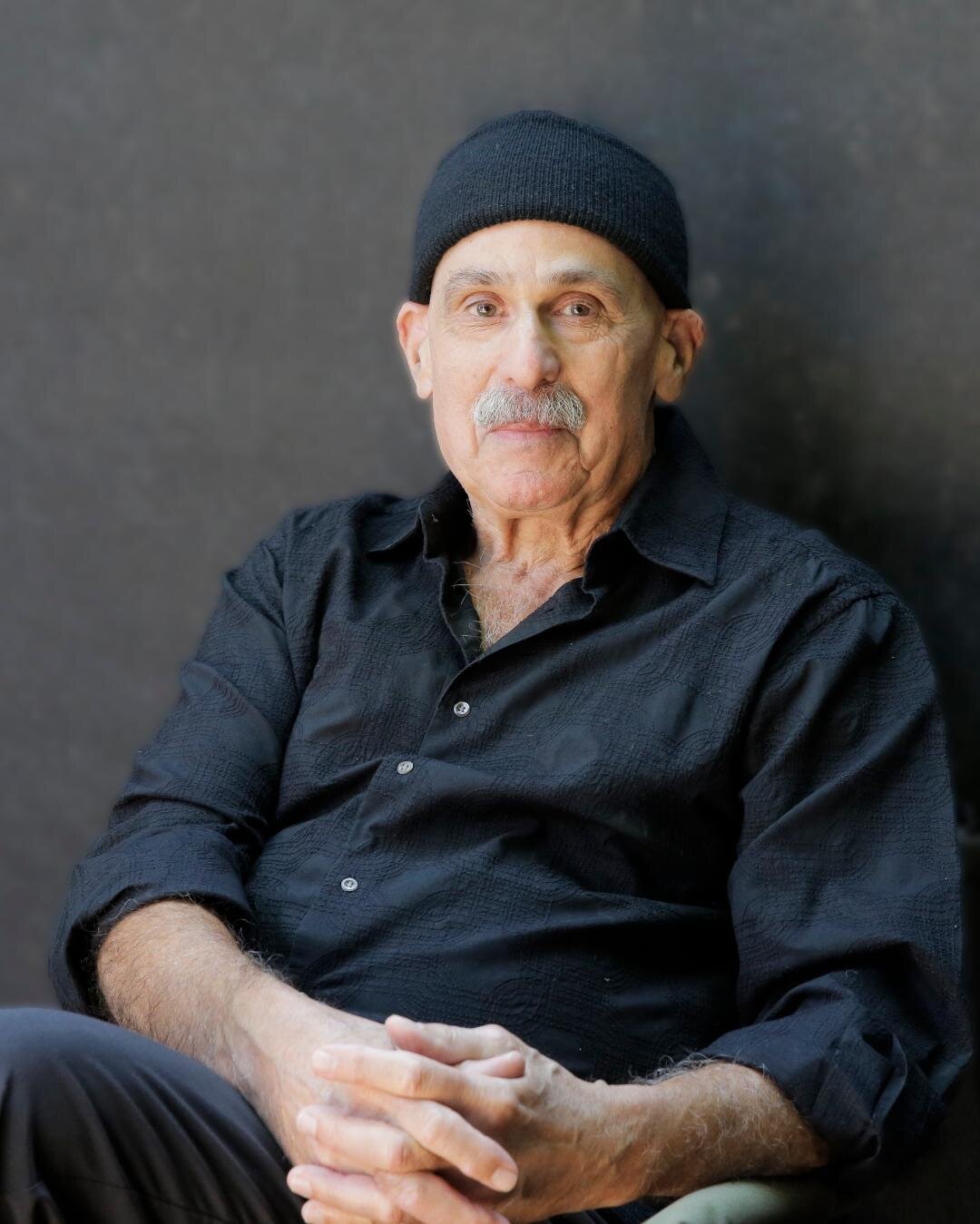The Great Chinese-in-Hawaiʻi Novel

The Oldtimers brings history to life through gripping and honest portrayals of everyday people in Hawai‘i at the turn of the 19th century.
Lum has crafted a body of work that reaches back in time to reconnect readers with the sights, smells, and sounds, that sing to bygone memories stored in our blood from generations before us. It is both distant and familiar, an observation of how no matter our environments, the human spirit is ever enduring. In moments of flux and feelings of disconnection, works like The Oldtimers are bastions of humanity that ground us to our cultural histories.
I was honored to sit down to discuss The Oldtimers with Wing Tek Lum. It is glaringly obvious how fortunate Hawai‘i is to have a local poet that holds our history so close to his heart, maybe one of the last few torches being held for the generations that built the Hawai‘i we know now. Our conversation emphasized how important it is to preserve the narratives that make up our local identities and how intergenerational relationships are key to that. There is so much to learn from Lum and other voices like his and I’m inspired to continue these conversations, hopefully until I become an old timer myself.
—Jill Fukumoto,
poet and Trustee of the
United Chinese Society of Hawai‘i
An Interview with Wing Tek Lum and Jill Fukumoto
JILL FUKUMOTO
Your book gave me so much to think about. I didn’t have any expectations going into it, but I was truly blown away. I can’t wait to share it with younger readers. I hope our recent United Chinese Society poetry reading brought in a new audience for your work. It’s such an important collection.
WING TEK LUM
I’m really glad you brought up UCS. The people in the UCS audience have the same common ancestors as I do, and I wanted to share these stories with them. Many of them are my age—old futs who might have a deeper connection to these histories. We probably have more in common than I might with younger audiences, but I hope it resonates with everyone.
JILL
Art builds community because it’s so emotional. That’s really what we want to create with UCS’s NexGen—rebuilding the kind of community UCS was founded on 141 years ago. It looks different now, but the intention is the same.
WING
Exactly. That’s why I wrote so many prose vignettes in the book—each giving different perspectives on life at the time. It mirrors what UCS was about in the old days. There were so many different groups under its umbrella—music societies, village associations, trade unions like laundrymen and cooks. Everyone had their own perspective, but they all coexisted within the same community. That’s the spirit of UCS, and that’s what I hope to bring to the reading.
JILL
That’s great, I feel like things change so quickly, and it’s important to remember not just the general history of where we come from, but to feel connected to it. Especially as a generational Hawai‘i local. You researched and wrote about 1900’s Chinatown and the fire; having the chance to compare it to your life here in Chinatown now—I was curious how much of an impact that’s had on you.
WING
Well, for me, Chinatown is important personally. My grandfather had a store here even before the fire. His store was on Hotel Street, and when it burned down along with everything else, he relocated to King Street. He later expanded into other businesses, but our family has maintained a continuous presence in Honolulu’s Chinatown for over 125 years. My father worked here, and we still have an office in Chinatown.
I’ve been working here every day since 1976—that’s almost 50 years—so I’ve seen a lot of change over time. At the same time, I’ve tried to educate myself about what Chinatown was like even before my time, when my grandfather and father were here. So Chinatown isn’t just a historical interest for me—it’s also my personal history.
The people who do take on the responsibility of preserving history—whether it’s family knowledge, culture, or wisdom—are usually just a handful. That’s why I put so much effort into my poems. They’re precious to me because I want to get them right. Not a lot of people are invested in preserving these stories, so I feel a responsibility to do it properly.
JILL
What was your writing process like for The Oldtimers, and over how many years did you develop this collection?
WING
This wasn’t really a planned project. These poems came one at a time—between 1991 and 1997, I wrote about 10 to 12 poems about our pioneer generation—some made it into this book, some didn’t. Then, in 1997, I got distracted. I read Iris Chang’s The Rape of Nanking, and for the next 15 years, I focused almost exclusively on writing the 104 poems about that event which became my second collection.
After my Nanjing Massacre book was published in 2012, I started writing new material again. In 2015, I did some research on my family history and found records about my grandfather’s store. That inspired me to write another poem, then for the next eight years, I focused on this history which formed my collection of now 82 poems in total. So, while this didn’t start as a big project, by the end, it definitely became one.
JILL
Do you feel that writing those initial few poems, taking a break, and then returning to the collection changed the final story?
WING
Yeah. The poems from that first period were nowhere near as comprehensive as the rest of the book. I started reading more history, talking to people, and gathering inspiration to fill out the picture of life in Honolulu’s Chinatown and rural areas during that time period.
Poems don’t come out of thin air. I can’t just imagine them—they have to be triggered by something. Usually, I’ll read about a particular area of history, and something will inspire me. I’ll think, Oh, I can turn this into a poem. Sometimes it works, sometimes it doesn’t. But when it does, I keep refining it.
Near the end of the project, I realized I was actually trying to give voice to people who were unable to tell their own stories—people who had been forgotten. I wanted to provide a fuller picture of that time for people today to appreciate what life was like 100 to 125 years ago.
That realization only came when I was putting the collection together. While writing the poems, I didn’t consciously set out to do that. But looking back, that’s exactly what I was doing.
One thing that became very important to me… In Chinese studies courses, we learn that there's these three major religions of China, Confucianism, Taoism, Buddhism; but scholars like C.K. Yang have described folk religion as the fourth major belief system, especially in the rural areas. What they believe, what they practice, their customs and habits had a lot to do with ancestor worship as one of the main components of folk religion.
For the Chinese men who came to Hawai‘i as single laborers, it became a crisis. If you couldn’t bring your wife over or never got married, and you realized you were going to die in Hawai‘i without children, it created a major existential crisis. According to their beliefs, without descendants, there would be no one to worship them as ancestors. Their spirits wouldn’t receive tributes, and their knowledge and culture would disappear. That idea was deeply unsettling to me as I was writing about it.
I’m a third-generation Chinese American. My grandparents were first-generation immigrants, and today we have fourth- and fifth-generation descendants. We’re the lucky ones—our ancestors were able to get married and have children, continuing the family line. But many bachelor men never had that chance.
The one big exception was those who married Native Hawaiian women. That’s why there are so many part-Hawaiian, who are also part-Chinese in Hawai'i today. But overall, in the 1900 census, Chinese men outnumbered Chinese women by six and a half to one. There simply weren’t enough women, so many men remained bachelors their entire lives.
That bachelor society essentially died out. You can see their graves in places like Manoa Cemetery, but no one tends to them during Ching Ming. No one remembers who they are. That’s a real shame. I thought, I need to continue their stories because there was nobody that they could pass it down to when they were alive.
“History sparks the writing. I imagined how people in 1900—those 7,000 imprisoned in Chinatown—must have felt facing the bubonic plague and the destruction of their community.”
...
“I didn’t have to spell that injustice out too much. The reality is already there in the poem.”
JILL
That’s a beautiful way to preserve history, and it definitely comes through in your poems. What really resonated with me was how diverse and honest the portrayals were—not just in age and gender, but in perspective. Seeing events from different viewpoints, especially women’s experiences in poems like “Pillow Talk,” “The Spinsters,” “Little Sister,” and “The Wife of a Hundred Husbands,” was incredibly powerful. Was writing about women, from the perspective of women, a deliberate choice for you?
WING
I don’t know if “deliberate” is the right word, but I thought it was important. I felt I could tell these stories in a meaningful way. Of course, I’m not a woman, just like I wasn’t a man living in Chinatown 125 years ago. Writing historical poetry already requires a leap of imagination.
But sometimes, a particular story is best told through a certain voice. For example, I didn’t think I could write a compelling poem from the male customer’s perspective in a poem about prostitution. I was more interested in the woman’s point of view.
I could never write a memoir or autobiography of that period—I wasn’t there. It has to be historical, but it also has to be fiction. I have to imagine it.
I didn’t just want to tell the men’s stories—how they worked in sugar plantations, ran laundries, and did hard labor. I also wanted to show their diversions—opium, gambling, brothels. But even more than that, I wanted to portray the people they affected, especially the women.
Women were often taken advantage of in that society. “The Spinsters,” for example, highlights how unfair the culture was to women. It wasn’t just a personal tragedy—it was part of the whole society. Women had to wait to be chosen for marriage, and if they weren’t, they were left with few options.
So, I didn’t have to spell that injustice out too much. The reality is already there in the poem.
I took a similar approach in my Nanjing Massacre collection. I wrote poems from different perspectives—one from a prisoner being used for bayonet practice, another from a Japanese soldier learning how to use a bayonet. I also wrote about women being raped, their feelings at that moment (if it's even possible for me, as a man, to capture that experience). I don’t know how successful those poems are—others would have to judge that—but I tried.
JILL
You mentioned that your poems are often sparked by historical events. Does the history dictate your writing style, or does your style shape how you tell the history?
WING
Usually, history sparks the writing. A great example is my section on the Chinatown fire and quarantine. I wrote one poem about it in the 1990s but didn’t return to the topic until 2020—right as the COVID-19 pandemic started. The parallels were striking.
I reread James Mohr’s Plague and Fire, which details the bubonic plague quarantine and the subsequent fire that destroyed Chinatown. His book was full of vivid anecdotes that inspired me to write more poems on the subject.
The pandemic made me reflect deeply on my own personal mortality, and I hope that carried through in the poems. I imagined how people in 1900—those 7,000 imprisoned in Chinatown—must have felt facing the bubonic plague and the destruction of their community.
JILL
It’s so poignant that it has been published right after we're kind of over the hump of the pandemic and feeling like we just lived through this. History repeats itself; your poems made me realize that, despite different settings, we’re still so human; our emotions, fears, hopes, and how we treat each other remain the same and there’s so much to learn from that.
“For my section on the Chinatown fire and quarantine, I wrote one poem about it in the 1990s but didn’t return to the topic until 2020—right as the COVID-19 pandemic started. The parallels were striking.”
JILL
I feel like my next question would’ve been, "How do we keep these stories of the old timers alive for new generations?" But I think that’s also a question for me—it’s a shared struggle. It’s finding ways to encourage my peers to feel the nostalgia or fondness I do when I look back at our history; and I feel this from my older generations, like my grandfather, who tells stories a mile a minute because I think he feels time slipping away. He doesn’t want those memories to be lost.
WING
Oh, that’s great. That reminds me of one of my poems in the book, “Flavors and Values,” from the section on the fire. When I wrote it, I wasn’t thinking about it in these exact terms, but in hindsight, I realized that it emphasizes the importance of passing down of our accumulated knowledge—our culture—before it’s lost.
When one person dies, their stories might not seem like a big loss. But when an entire community is at risk—like during the bubonic plague quarantine in 1900 or even during the COVID-19 pandemic—it’s terrifying. Civilization, culture, and history can disappear if there’s no one left to receive this accumulated knowledge and carry it forward.
We’re always at risk of that loss, especially because fewer people today seem interested in history. If we lose the few who do care, that knowledge won’t get passed down.
JILL
That’s so true. As a budding old timer yourself, how do you hope your generation is remembered and what takeaways do you hope our younger generations will receive?
WING
I don’t want to be presumptuous and say, “I hope I made the world a better place.” That feels too grand. Instead, I just hope I didn’t screw it up. I hope I left things in a way that allows your generation to write your own stories, with the freedom to do so however you choose.
I’ve been lucky to tell the stories I wanted to tell. And I am lucky you are interested in listening to what I wish to share, interested in listening to my poems. It becomes a two-way street. More like talking story with each other.
My wish is that you and others have the same freedom, inspiration, and time to tell the stories you want to tell, too. That’s the best I can hope for.
Wing Tek Lum is a Honolulu businessman and poet. Bamboo Ridge Press has published two earlier collections of his poetry: Expounding the Doubtful Points (1987) and The Nanjing Massacre: Poems (2012). With Makoto Ōoka, Joseph Stanton, and Jean Yamasaki Toyama, he participated in a collaborative work of linked verse, which was published as What the Kite Thinks by Summer Session, University of Hawai‘i at Mānoa in 1994. Recipient of an American Book Award and others, he was most recently honored to receive the Loretta D. Petrie Award for outstanding service to Hawai‘i’s literary community from the Hawai‘i Literary Arts Council.
Jill Fukumoto was born and raised in Honolulu, Hawai‘i. She attended the University of Wisconsin-Madison as a part of the Fourth cohort of First Wave; a hip-hop arts scholarship program that encourages and develops poets, DJs, breakdancers, and graffiti / visual artists to bring literacy and art to disadvantaged communities. She is currently the Owner / Principal of Poha School of Real Estate and member of Wāhine Freelance Alliance. Her passion for nurturing her culture in Hawai‘i lead her to co-founding the Chinese Chamber of Commerce of Hawai‘i’s (CCCH) Young Professional organization and is currently a Board of Director of CCCH, a Trustee for the United Chinese Society, Co-Chair of UCS NexGen, and is a member of the 3rd cohort of the Honolulu Japanese Chamber of Commerce’s Emerging Young Business Leaders.
Banner image courtesy of Glenn Villas.








